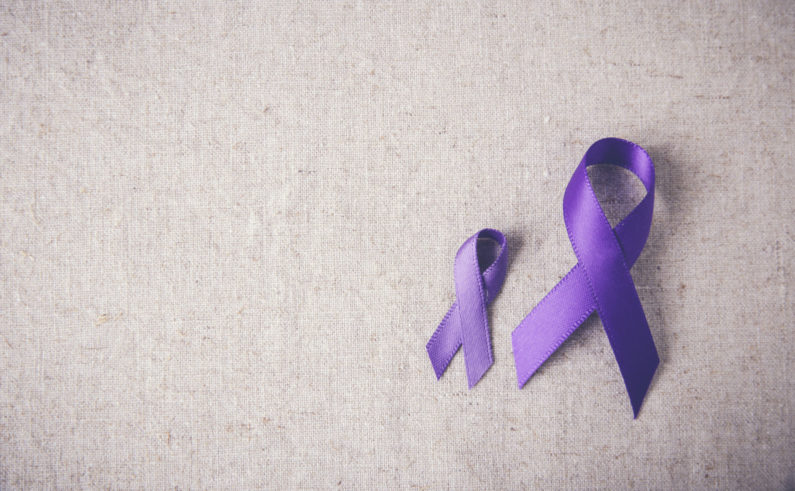October is both breast cancer awareness month as well as domestic violence awareness month. For many years now October has been filled with walks and runs to raise awareness for breast cancer research , buildings lit up with pink lights, and beautiful pink ribbons women and men proudly display on their t-shirts, hats, cars, etc. All of this awareness is a sign of the amazing effort breast cancer survivors and their supporters have made to recognize that breast cancer affects not only the survivors but society as a whole and that if we come together collectively we can and have made a tremendous difference in fighting breast cancer and supporting survivors.
So what about domestic violence awareness? Where are the purple ribbons, the walks, the lit up buildings? One in four American women will be the victim of intimate partner abuse in the course of her life. These statistics are striking but cannot convey what is truly a shattering psychological paradox. Domestic abuse can cause a dramatic unraveling of one’s self esteem, emotional stability, and capacity to think. One’s very sense of self is altered as distorted thoughts take over, including un-warranted self-blame, doubt, and disorientation about what is real and not real. All of this makes it extremely difficult for survivors to speak about their experiences.
One of the main reasons domestic violence is so hidden from the public discourse is that it most often occurs between intimate partners. Intimate meaning: sexual partners, husbands, wives, boyfriends, girlfriends. Discussing intimate partner violence is also discussing sex and sexuality, the good and the bad. The shame associated with being abused by someone you cared about, loved, were sexually involved with, is often intensified by judgments of blame and “She should have known better,” or “I would have left the minute he put a hand on me.” Intimate relationships are complicated and it is not always so easy to differentiate healthy behavior from unhealthy behavior. That is why more public education around healthy sexuality and relationships can and will prevent intimate partner abuse.
Domestic abuse is our collective problem. It affects not only the survivors, but how society views sexuality, intimate relationships and where and how we place blame. So let’s try and get out more purple ribbons for next October, as the more we raise awareness to domestic abuse the more we talk about this issue, educate others and help survivors out of the dark.
Read more blogs on Domestic Violence/Abuse Month:

